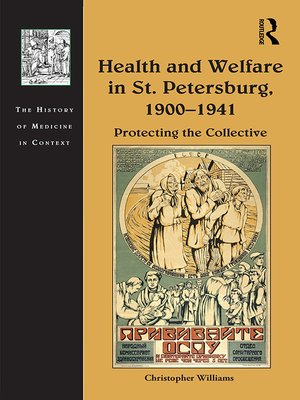Health and Welfare in St. Petersburg, 1900–1941
ebook ∣ Protecting the Collective · The History of Medicine in Context
By Christopher Williams

Sign up to save your library
With an OverDrive account, you can save your favorite libraries for at-a-glance information about availability. Find out more about OverDrive accounts.
Find this title in Libby, the library reading app by OverDrive.



Search for a digital library with this title
Title found at these libraries:
| Library Name | Distance |
|---|---|
| Loading... |
In the first book to chart late Imperial and Soviet health policy and its impact on the health of the collective in Russia's former capital and second "regime" city, Christopher Williams argues that in pre-revolutionary St. Petersburg radical sections of the medical profession and the Bolsheviks highlighted the local and Tsarist government's failure to protect the health of poor peasants and the working class due to conflicts over the priority and direction of health policy, budget constraints and political division amongst doctors. They sought to forge alliances to change the law on social insurance and to prioritise the health of the collective. Situating pre- and post-revolutionary health policies in the context of revolutions, civil war, market transition and Stalin's rise to power, Williams shows how attempts were made to protect the Body Russian/Soviet and to create a healthier lifestyle and environment for key members of the new Soviet state. This failed due to shortages of money, ideology and Soviet medical and cultural norms. It resulted in ad hoc interventions into people's lives and the promotion of medical professionalization, and then the imposition of restrictions resulting from changes in the Party line. Williams shows that when the health of the collective was threatened and created medical disorder, it led to state coercion.







